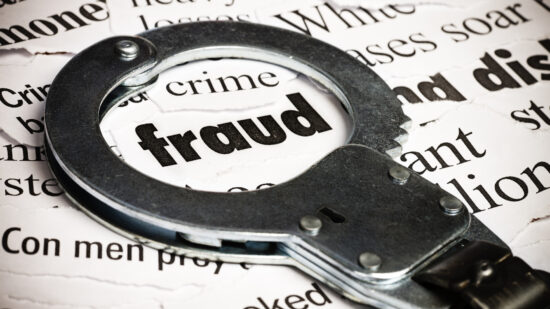While 2020 is (fortunately) in the rearview mirror, issues involving the pandemic-era Paycheck Protection Program (PPP) and the Economic Injury Disaster Loans (EIDL) are (unfortunately) not going away any time soon. This article provides a brief update on two of the most currently active areas — fraud enforcement actions and PPP appeals — in the pandemic-era loan programs context.
PPP/EIDL Fraud Update
- President Biden recently signed two bills — the PPP and Bank Fraud Enforcement Harmonization Act of 2022 and the COVID-19 EIDL Fraud Statute of Limitations Act of 2022 — that extend the statute of limitations to 10 years for criminal and civil enforcement actions for fraud in connection with the PPP and EIDL.
- Previously, the statute of limitations for criminal and civil fraud enforcement actions was six years.
- The Department of Justice reports that, as of March 2022, its efforts to combat COVID-19-related fraud has resulted in criminal charges against over 1,000 defendants with alleged losses exceeding $1.1 billion; the seizure of over $1 billion in EIDL proceeds; and over 240 civil investigations into more than 1,800 entities and individuals for alleged misconduct in connection with pandemic relief loans totaling more than $6 billion.
- These recent developments confirm that PPP and EIDL fraud investigations and enforcement actions will continue to be a priority for the government for years to come.
- PPP and EIDL recipients would, thus, be wise to maintain their loan files for 10 years and to conduct due diligence reviews proactively to ensure that loans were properly received, utilized, and forgiven.
PPP Appeals Update
- Both the Small Business Administration (SBA) and the SBA Office of Hearings and Appeals (OHA) have experienced delays in assigning government representatives to each appeal case, which in turn impacts the expected appeal timelines, as laid out in the SBA’s regulations. In the Spring of 2022, for example, we saw up to a one-month lag between the date of an appeal filing and the assignment of an OHA judge. This delay, however, has been reduced over time as OHA works through its appeals backlog.
- Anecdotally, we have seen the SBA take “corrective action” in a number of appeal cases, providing appellants with their requested relief in the form of loan forgiveness. This should be encouraging for appellants who believe the SBA’s final loan review decision has been made in error, and it highlights the importance of pursuing a timely PPP appeal. It is also encouraging to see the SBA admit when the government’s first-line review was in error.
- Anecdotally, we have also seen several cases where the SBA withdrew its final loan review decision and then filed a motion to dismiss, seeking a remand of the case for further government review. This recurrent procedural move could signal any number of potential outcomes for a case, but we have seen the SBA use the request for remand in more complicated fact patterns with open questions of law and fact. It also indicates the first-line government review that issues final loan review decisions is erring on the side of denial, again highlighting the importance of filing a PPP appeal to secure a more thorough and meaningful review.
- Because the SBA Office of Inspector General (OIG) has identified over 70,000 loans totaling $4.6 billion dollars in potential PPP loan fraud, we expect both the PPP appeals process and investigations — administrative and criminal — to continue for years to come (hence, the recent extension of the statute of limitations and SBA’s increased scrutiny of loan forgiveness applications).
- Despite months’ worth of PPP appeals decisions having been adjudicated and the regulatory policy that “[f]inal decisions are normally published without redactions on OHA’s website,” SBA OHA apparently has not yet published a single PPP appeal decision (13 C.F.R. 134.1211(f)). Although these decisions are not necessarily precedential, they would provide valuable insight for appellants and elucidate the novel legal scenarios presented by the PPP regulations and the new appeal process (13 C.F.R. 134.1211(e)).
Bradley will continue to provide updates on PPP fraud and appeal activity. If you have any questions about or need assistance with PPP/EIDL fraud enforcement actions or PPP appeals, please do not hesitate to contact Aron Beezley or Nathaniel Greeson.
